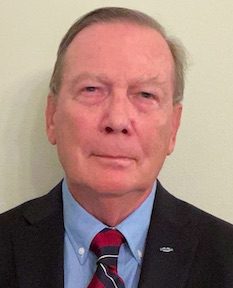Major Robert E. McCall III
Description
Major Robert E. McCall III was commissioned as a Military Intelligence Officer upon graduation from Engineer Officer Candidate School Class 13-69 at Fort Belvoir, Virginia, on 2 May 1969.
He enlisted in the Army on 13 May 1968, attended Basic Training at Fort Benning, Georgia, then Advanced Infantry Training at Fort Dix, New Jersey. Following his graduation from OCS, his first duty assignment was Executive Officer, then Commander of the 111th Military Intelligence Group’s Region III Orlando Field Office. He subsequently attended the Military Assistance Security Advisor Course at Fort Bragg, North Carolina, where he acquired Vietnamese language skills.
In June 1971, he was assigned as a Deputy District Senior Advisor in the Ia Drang Valley with the Military Assistance Command Vietnam’s Advisory Team 36. As half of a two-man advisory team, he participated in sustained combat operations, including 13 heliborne assaults, over the next ten months. He acquired Jarai (Montagnard) language skills. He was released from active duty in April 1972. He participated in the Army Reserves until 1989 and attained the rank of Major.
Major McCall's military education includes the Military Intelligence Counterintelligence Officer Course, Military Intelligence Officer Advanced Course, United States Army Command and General Staff College and Naval War College modules Employment of Naval Forces, and Strategy and Policy (the latter with distinction).
His military awards and decorations include the Combat Infantryman’s Badge, Bronze Star (Valor) w/ OLC, Air Medal, Vietnamese Cross of Gallantry Regimental Level, Vietnamese Armed Forces Honor Medal 1st Class, National Defense Service Medal, Republic of Vietnam Campaign Medal, and Vietnam Service Medal.
He joined the Central Intelligence Agency in 1975. After completing training, he served as an Operations Officer in Addis Ababa, Ethiopia (1977-1979) and Khartoum, Sudan (1979-80). Following a Headquarters tour in the Africa Division, he served as Deputy Chief of Station Harare, Zimbabwe (1983-86), Deputy Chief of Station Pretoria, South Africa (1986-88) and Chief of Liaison, Manila, Philippines (1988-90). Following Headquarters senior assignments in Near East and South Asia Division, his next field assignment was Deputy Chief of Station, New Delhi, India, (1992-94) followed by a Headquarters tour as Chief/Israel Group (1995-96). In 1996 he was promoted to Senior Intelligence Service (SIS-General officer equivalent) and served as a Deputy Chief of Near East and South Asia Division. His final field assignment was Chief of Station, New Delhi (1998-2000).
He retired in 2000 as an SIS-2 after 25 years of service in the Agency’s Directorate of Operations. Following 9/11, he worked as an Agency Independent Contractor mentoring newly-hired Operations Officers. He currently provides advanced tradecraft training to military Special Mission Units and, since 2008, has served as Chief of Station for the DIA Joint Military Attache School’s final exercise.
Upon his release from Active Duty, he completed his undergraduate degree in Political Science and pursued graduate studies in International Relations at the University of Tennessee. He also attended Harvard University’s Program for Senior Executives in National and International Security Policy (1987), a program for flag and general officers from U.S. and international armed forces, senior civilian leaders in government, international organizations and defense industries.
His civilian awards include the Distinguished Career Intelligence Medal and two individual and one group National HUMINT Collector Awards for excellence in the collection of significant intelligence.

